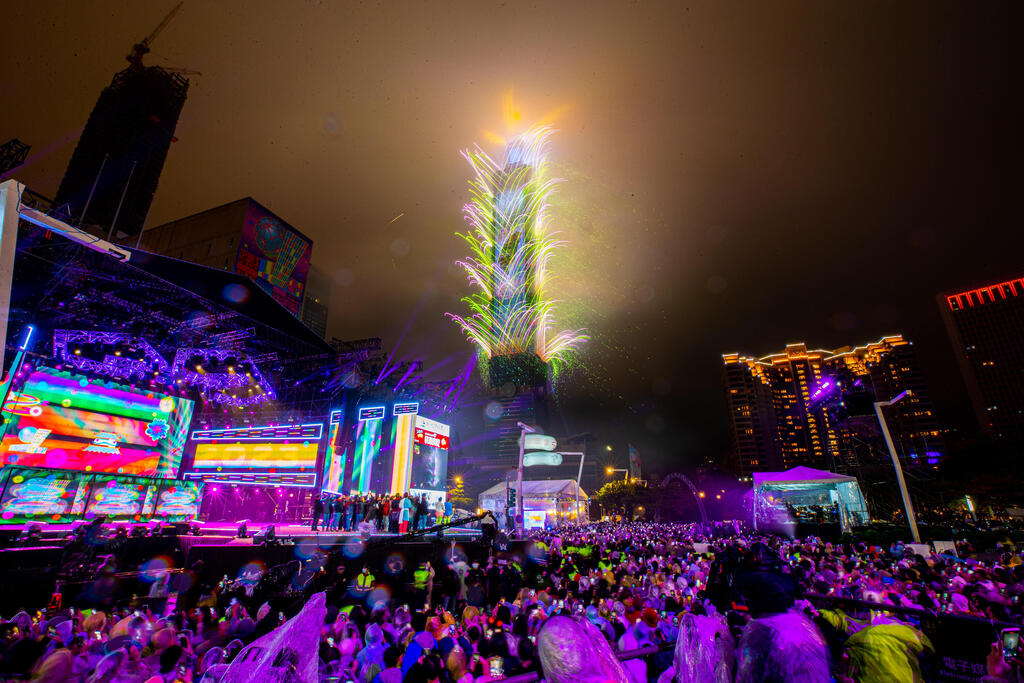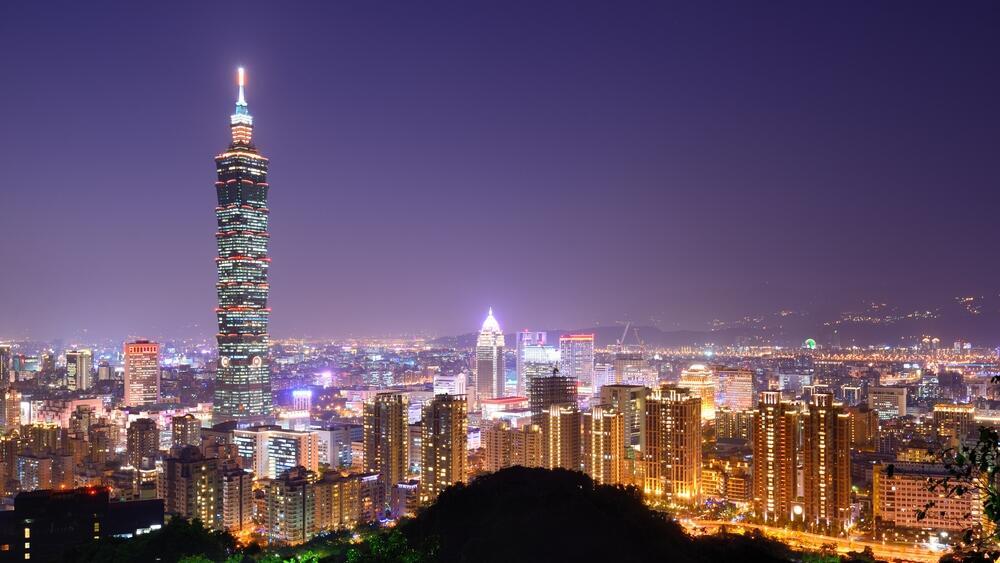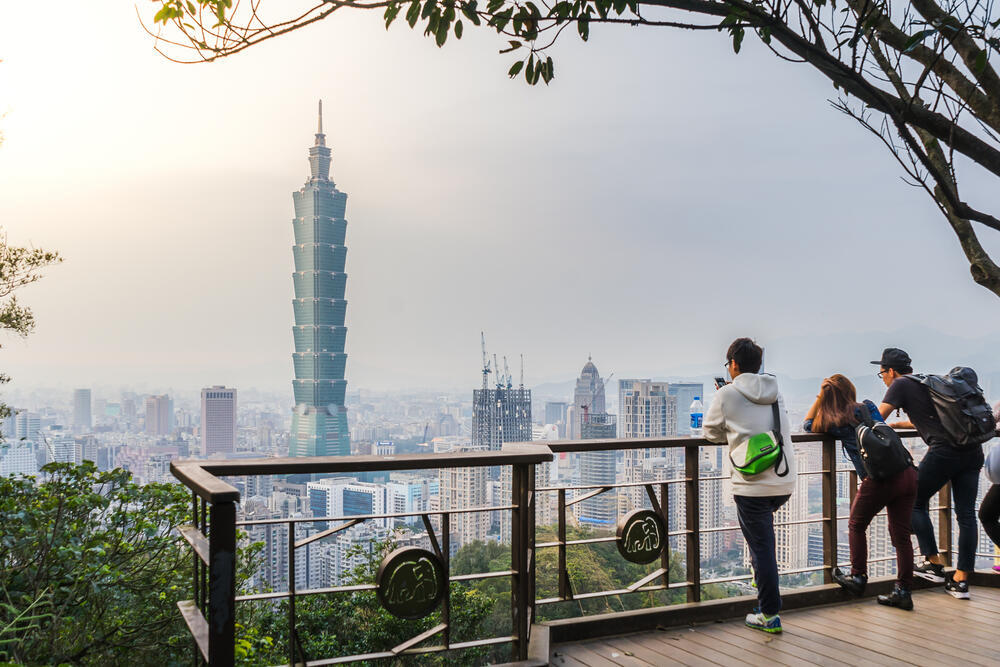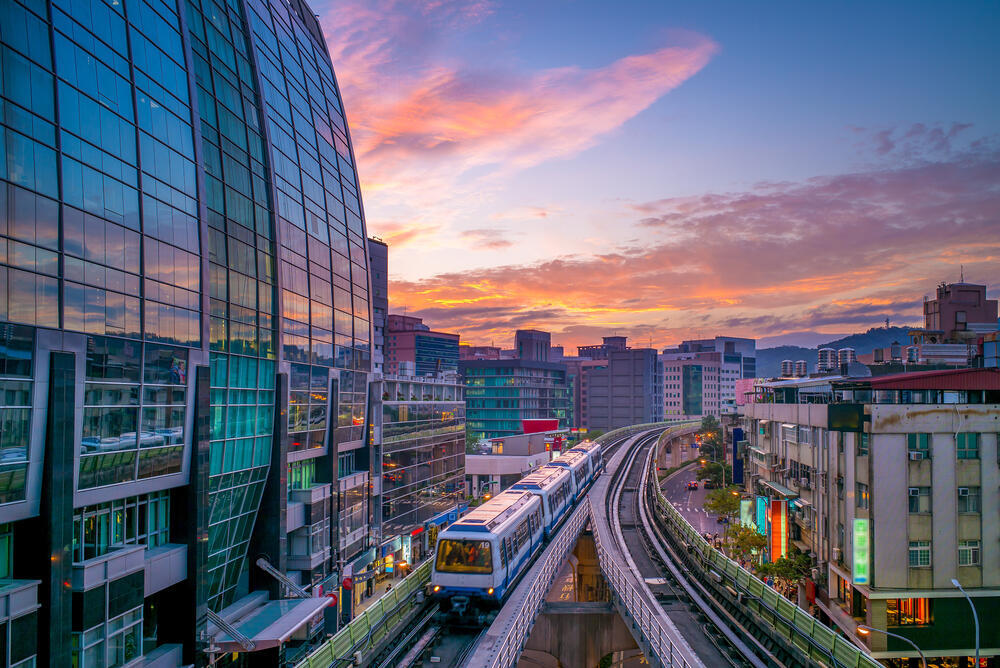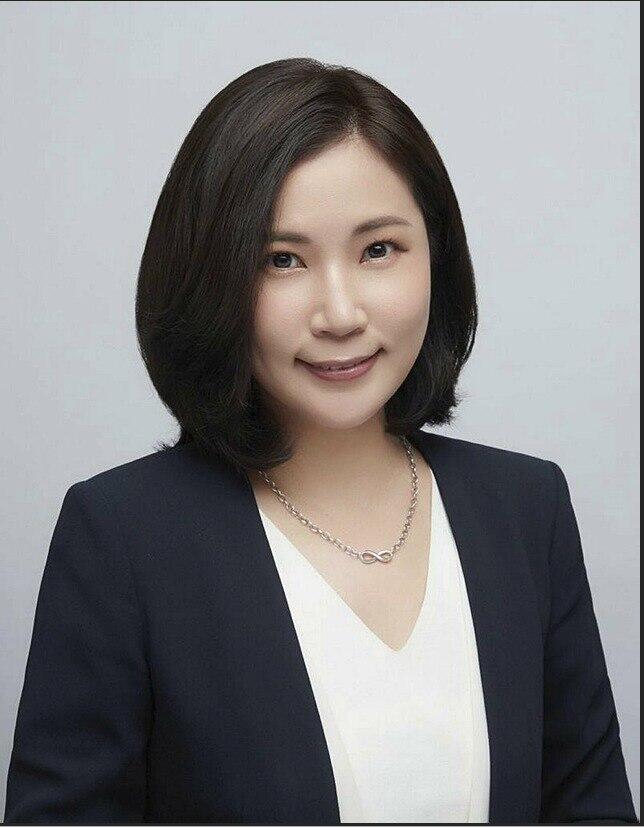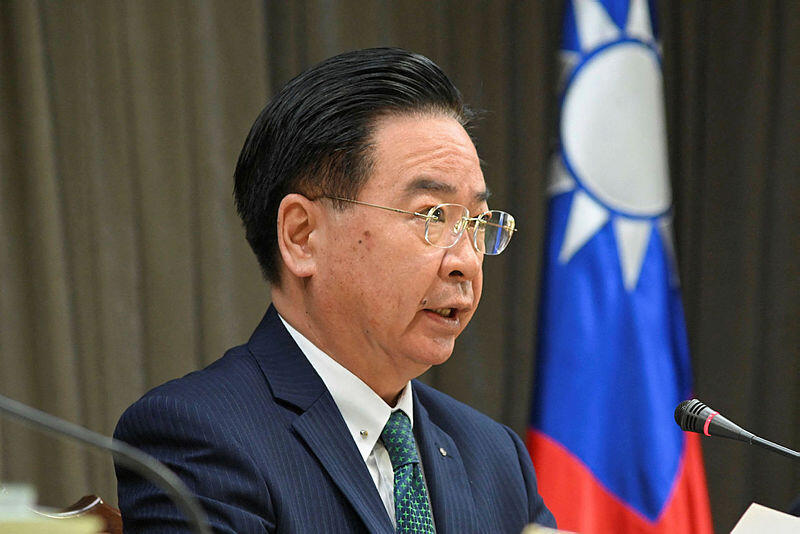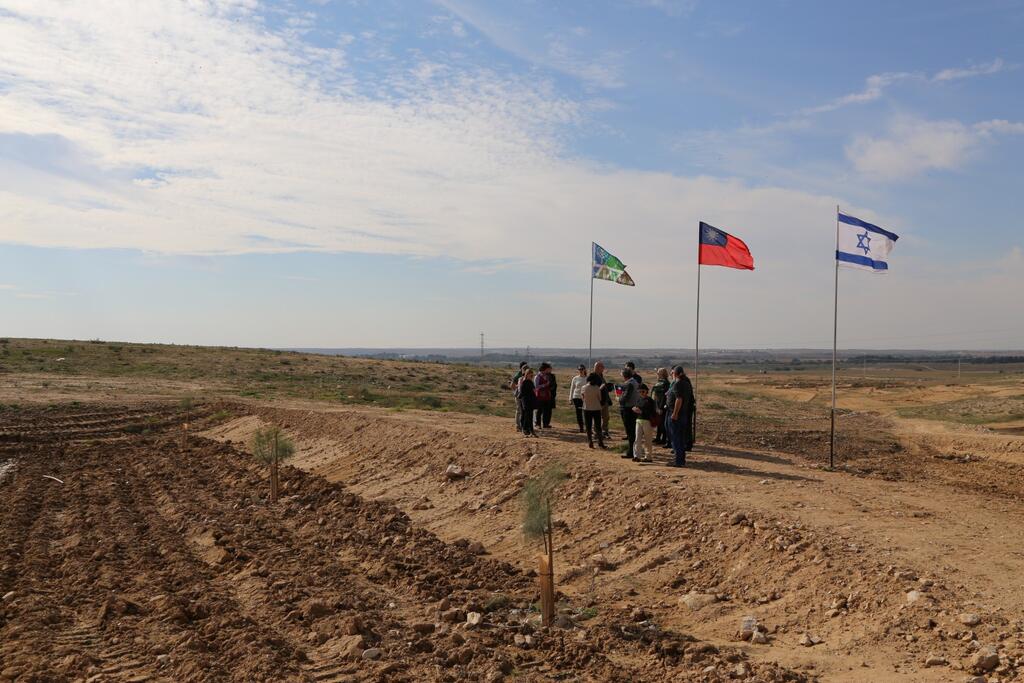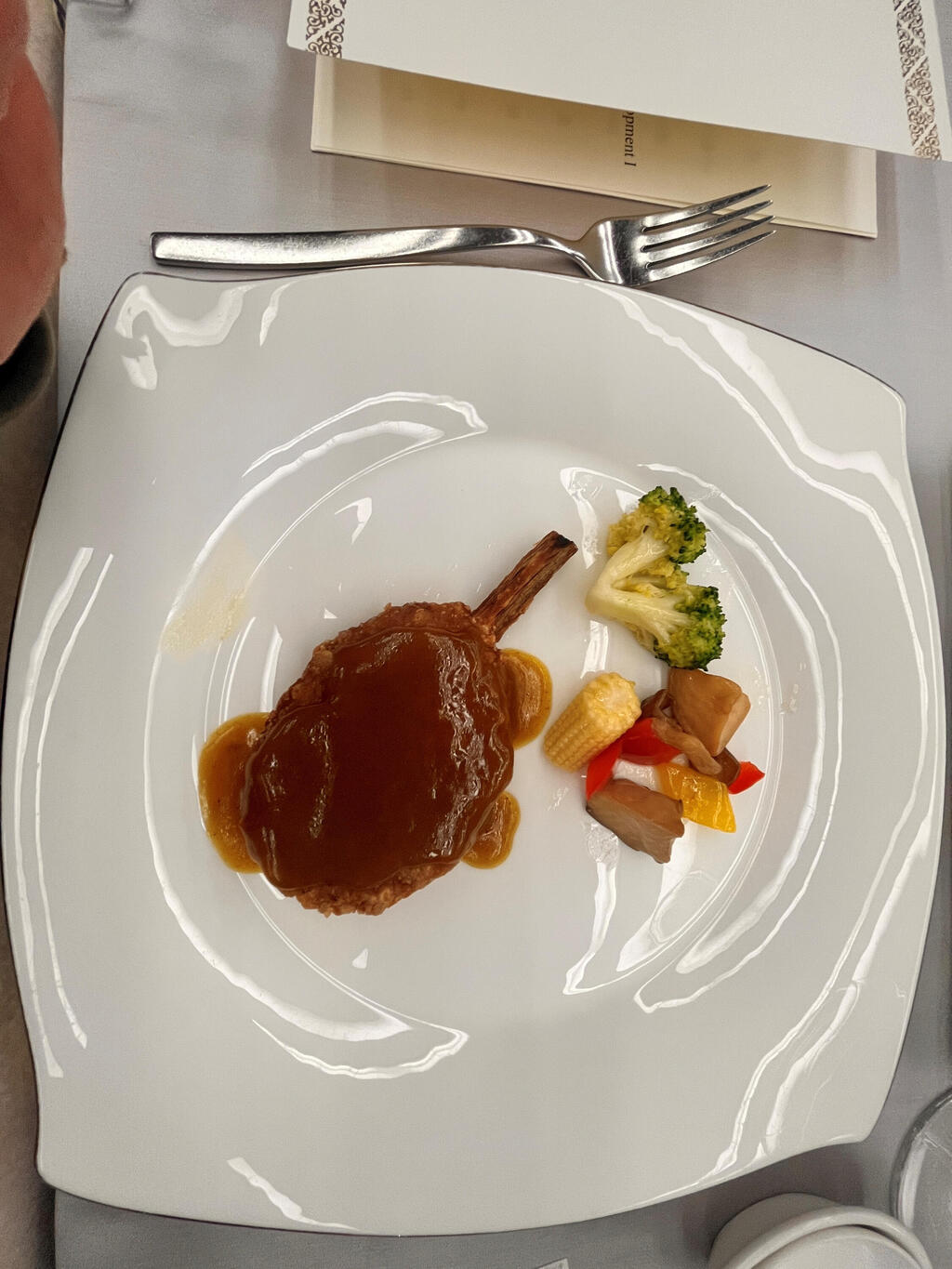If the Israelites had left Egypt and committed a much greater sin than the sin of the spies, and instead of wandering for 40 years in the desert the punishment would have been to walk for 400 years to the southeastern tip of Asia, there is a chance that they would have settled on a small island near China and start making a mess.
Read More:
Instead of the Israelites, another wonderful people got settled on the small island, although much more calm and polite, but reminds in so many aspects of the people of Israel, and even more so, the State of Israel.
They are so similar, that it is surprising and very unfortunate that the ties between Taiwan and Israel are sparse, relative to the potential, certainly with regard to tourism, business, strategic collaborations, and above all - full official relations.
It starts with people. Taiwanese are warm and open people, they like to talk, share, ask, search and travel the world. They are very attached to their tradition and glorious past, jealously guarding their food, language, and customs. On the other hand, they strive for innovations, initiate, seek to be leaders in every field, and above all they are independent.
The similarities don't end with people. Taiwan is a small country in international terms, its area is 60% larger than that of Israel, and has 23 million inhabitants. Despite its size and despite its isolation (not only physical isolation due to being an island nation, but also political isolation, and we will get to that later), it is one of the 20 strongest economies in the world.
Its number one manufacturing and export business is the chip industry for the global computer and communications industry, but they also specialize in precise medical equipment and medical development, advanced agriculture and cyber. Sounds familiar?
My first encounter with Taiwan took place more than three years ago. A good friend from the Ministry of Foreign Affairs told me, "You must meet these people. There is something different, unusual about them, I have a feeling you will find interest in them."
A meeting was quickly organized with Paul Chang, who served at that time as Taiwan's representative in Israel. Until then, as far as I was concerned, Taiwan was narrowed down, unfortunately, to "made in Taiwan" labels on clothes in the 80s and electrical appliances in the 90s.
In advance of the meeting, I learned a little about the young/old country and its turbulent history, but at that meeting, I learned another thing, which months later shook the world and entered the pages of history: a few days before the meeting, I read brief reports about the outbreak of a mysterious virus in the city of Wuhan in Hubei Province, China.
Before we parted, I asked my guest if he had heard anything about this virus. Mr. Chang weighed his words carefully before replying: "Yes, this incident has alarming potential, but we are prepared, we have experience from the outbreak of the previous virus, SARS."
In the following nights, I plunged into Chinese news sites, blogs and WeChat groups (the Chinese version of WhatsApp), and began to understand what was happening in Wuhan.
I also realized that apparently, many weeks before the world woke up, in fact even before the World Health Organization received the initial report from China, they were already ready; I also realized that this thing was about to reach us in the Holy Land as well – masks, quarantines, lockdowns and lots and lots of patients.
In the middle of January 2020, two months before the first lockdown in Israel, I had already equipped myself with masks, gloves, booklets for children, a small generator and fuel for 40 days and 40 nights.
10 View gallery
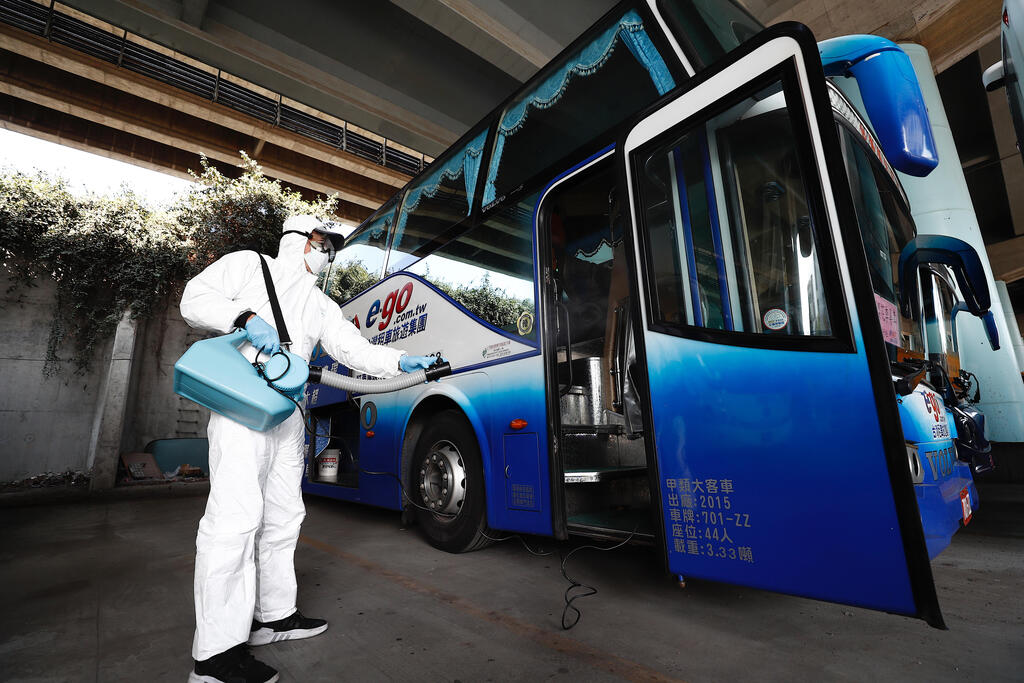

Disinfecting buses in Taiwan in the early days of the COVID-19 pandemic
(Photo: EPA)
I prepared members of my family and innocently and creepily explained to my friends and colleagues - who began to distance themselves - that the end of the world was coming.
Taiwan ended the first wave of COVID-19 with just over 300 patients and seven deaths in total, an amazing figure, considering the fact that China is 200 kilometers away, and that most of the Taiwanese's trade, tourism and sometimes even family ties are with China, their "mainland."
Later on, in the occurrence of further COVID waves, the defense was eroded and the number of deaths piled up, until they reached about 18,000 in total. Even today, masks are a common thing everywhere, in some places they are still mandatory, workers and service providers wear them without exception.
Under constant threat
Driving through the streets of Taipei, the capital of Taiwan, the first impression is somewhat grim. The lights emerging from the windows at night are dim, the buildings are tall but not very tall.
Strolling along the streets, on the other hand, is very enjoyable. Mainly because of the people. They are kind and gentle, happy to talk, help if you need to, and they have a kind of balanced, prominent nature, which I haven't met in many years.
And it's interesting, because Taiwan today is in a very similar position to Israel, with one unfortunate difference: its situation is much more dangerous.
The similarity is in the existence of a constant threat: Iran threatens Israel with destruction, Hezbollah, Hamas, you know the story. There, China refuses to recognize Taiwan, claims historical and legal ownership of it, and it is clear to everyone that it is not a question of whether a violent conflict will occur, but when.
The American assessments speak of 2025, the Taiwanese prefer to estimate, cautiously, until 2027. Either way, a significant flare-up could once again undermine the world order, and with no small probability it will be even more widespread than the war in Ukraine.
"China's economic situation is being subverted, the future looks bleaker for them, and this could have an impact on the relationship between us and them," says Taiwanese Deputy Foreign Minister Roy Chun Lee, "but we notice a growing reluctance among the Chinese people for a war with Taiwan. Why should we endanger our children, they say."
However, recently this situation is starting to change a little, and more countries are warming up relations, perhaps as a result of what is happening between Russia and Ukraine.
The difference between Israel and Taiwan is in the type of threat, in the experience, in readiness and in the global situation. Taiwan is indeed an island, and an island is difficult to conquer, but the distance between Taiwan and China, the second most powerful country in the world, is small, and today, in order to subjugate a country, one does not have to invade it, as Putin insisted on doing in Ukraine.
The determined Chinese threat to Taiwan is so big that Taiwan is not a member of the United Nations because of Chinese opposition, and even the United States does not recognize it. In fact, there are only 13 tiny countries left in the world that recognize Taiwan and maintain full diplomatic relations with it, the most important of which is probably the Vatican.
However, recently this situation is starting to change a little, and more countries are warming up relations, perhaps as a result of what is happening between Russia and Ukraine.
The assessment that a violent conflict of some kind is apparently inevitable affects the moves that governments take in their relations with China, and sometimes countries "change sides" in the conflict to please Beijing or alternatively to punish it.
Taiwan, for its part, is trying to tip the balance through actions that, even if their intent is clear, are still preferable to violent threats. For example, cooperation with the Fiji Islands in a project that tries to slightly delay the rise of the sea level in certain residential areas in the country, or the transfer of millions of masks to Ukraine during the outbreak of the coronavirus there, and more.
"In recent years, we have acknowledged Israel's global importance and realized that both countries may benefit from improving their relations," says a senior official at the Taiwanese Foreign Ministry
The relations between Israel and Taiwan can be described as officially very cautious, but under the wrap of diplomacy there are warm currents of private and semi-official initiatives, such as joint business and cultural lobbies and businesses mainly in the fields of medical equipment, electronic equipment and what can be defined as "security periphery" - everything related to civil security at a time of emergency.
The latter have high Taiwanese demand, but on the other hand, there is also an Israeli (and international) fear - perhaps justified, given the tensions - of approving such transactions.
"The volume of bilateral transactions between Israel and Taiwan in the various fields has increased in the last three years by tens of percent. Taiwan is currently the fourth largest market in Asia as far as Israel is concerned," notes in this context Taiwan's representative in Israel, Abby Lee.
Ms. Lee is defined as a representative, and under her mandate (and that of her Israeli counterpart in Taiwan) are the handling and promotion of economic and cultural relations between the countries.
In fact, she is an ambassador, but without official and state etiquette (and some would say that this is more of a reward than a punishment). But we shouldn't define her as an ambassador. The previous times when I defined her as "Taiwan's ambassador", a fierce protest was extended to the Foreign Ministry and also to the newspaper editors.
Ms. Lee was previously the deputy of the current Taiwanese foreign minister, Dr. Joseph Wu Jaushieh, who defines her as his protégé and her role in Israel as a sign of the importance that Taiwan attaches to the relations between the countries.
"In recent years, we have acknowledged Israel's global importance and realized that both countries may benefit from improving their relations," says a senior official at the Taiwanese Foreign Ministry. "We have needs that you can help provide, whether by sharing know-how and experience or in equipment, and on the other hand, we have a lot to share in the fields of medicine, energy, cyber and more."
"Both nations live under an external threat," Lee adds. "Freedom and democracy are important to both nations. We are both very similar and complementary - Taiwan is a leader in the field of hardware, while Israel is one of the leaders in the field of software."
In recent decades, the two countries have signed 32 agreements, reflecting the collaboration between the countries. In times of emergency, if Israel comes across them, we will declare our support, and hope that Israel will do the same. Both Israel and Taiwan are eternal and irreplaceable and vital to international stability and security."
In light of the changes taking place in our region recently, it seems that a greater similarity of interests has been created between the countries than before.
China is getting closer to the Iranian-Russian axis, and in this situation, courageous ties with Taipei can, on the one hand, develop a growing market for Israeli defense industries and allow Israeli companies to benefit from the advanced technology that Taiwan has to offer, and on the other hand, make the Chinese reconsider the distressing approach to the "axis of evil."
In every conversation and at every opportunity, the Taiwanese ministers, led by Foreign Minister Dr. Wu, emphasize that Taiwan does not beg for help from the countries of the world and does not stipulate anything in case of such help.
Minister Wu, a very popular figure in Taiwan and highly sought after in the international media, emphasizes that in the event of a war between China and Taiwan, the entire world may be affected, including the supply chains, which have already been hit as a result of the COVID crisis and the war in Ukraine.
My conversations with the Taiwanese are taking place at the beginning of Operation Shield and Arrow, and half embarrassed, quietly, they also ask about the Iron Dome missile defense system, of course, with glowing eyes.
"If help will come and if not, we intend to defend ourselves. We will protect our home, and we are making the preparations for that," says the minister.
At the same time, preparation is indeed being done. Billions of dollars are spent on warning and protection equipment and systems, on first aid training for citizens and on the preparation of the home front as a whole.
The duration of mandatory military service for men is to be updated to two years instead of four months, and in recent days, voluntary recruitment of women into the reserves has begun, and thousands of women have already signed up.
An island of opportunity
Women in general take a significant and leading part in public life in Taiwan, which is one of the most liberal countries in Asia. Forty-three percent of members of parliament are women, Taiwan has a female president, a female director of the Council for National Projects, female executive directors of offices, etc. It is also the first country in Asia to officially acknowledge LGBT marriages.
10 View gallery
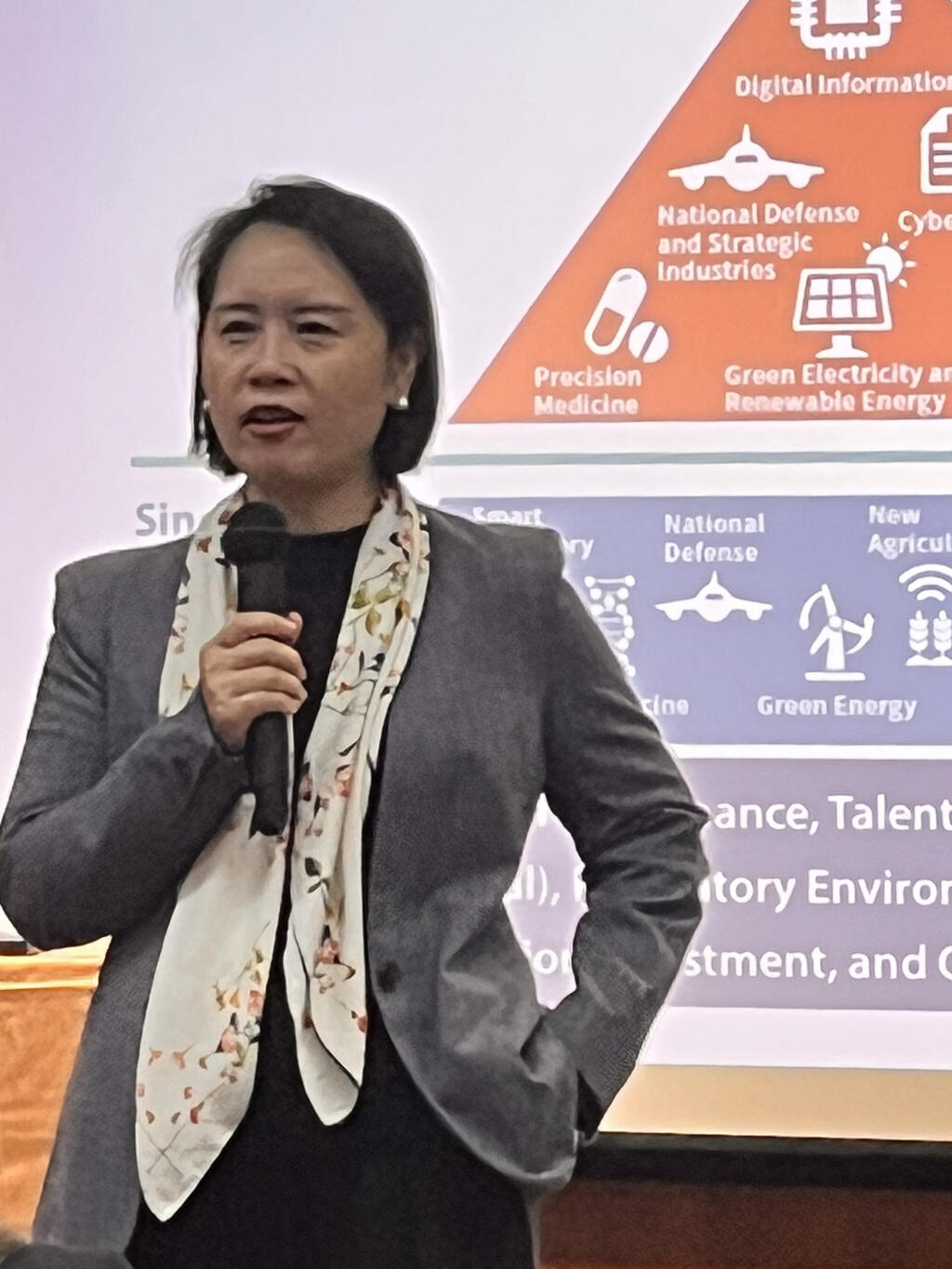

Director of the Department of Overall Planning at the National Development Council Connie Chang
(Photo: Alon Goldstein)
Ms. Connie Chang is the director of the Department of Overall Planning, National Development Council - the largest planning, integration and execution body in the country.
Chang and her organization are responsible for the execution of projects such as airports and hospitals, and also for helping the government identify and develop growth engines for years to come.
Chang says that in the coming years, Taiwan will invest large resources in six strategic growth engines: the chip industry, the defense industry, cyber, precise medical equipment, green energy, as well as everything related to preparations for possible emergency situations, including security situations.
It is interesting to note that despite the vicinity to China and the plans for green electricity, there are not many Chinese vehicles seen on the streets, certainly not like in Israel. What's more, it is very difficult to find gas stations in the city center or in residential areas, for safety and environmental reasons. So, the potential for an increase in the number of electric vehicles is clear.
The Taiwanese medical system, which is considered one of the best in the world, is also very similar to the Israeli system. All citizens of the country enjoy full health insurance and public medicine everywhere, through community branches of the central hospitals.
The system is very efficient, based on personal and national databases, and benefits from the developed local medical equipment industry and from research and development projects.
Just this week, a new system for the treatment of cancerous tumors based on a particle accelerator that irradiates the tumor with heavy ions at a speed of 70% of the speed of light was inaugurated at the Central Hospital in Taipei. This is one of the most advanced systems in the field. There are only 14 like them in the world, seven of them in Japan.
The director of the hospital, Prof. Wei-Ming Chen, says that according to the data available from Japan, this type of treatment can significantly increase the survival chances of pancreatic cancer patients in its early stages.
For tourists, Taiwan has a lot to offer, especially for lovers of nature, trekking and food. There are no direct flights from Israel to Taiwan, but it can be reached by connecting flights from Bangkok or Istanbul.
The climate on the island is tropical and subtropical, with dramatic mountain ranges in the center, surrounded by beautiful beaches, some of them peaceful with white sands, coconuts and bananas, including beaches for wave surfing.
The capital Taipei offers historical sites such as the Presidential Palace built during the Japanese reign on the island, and the monument to the memory of Chiang Kai-shek, the father of modern Taiwan, located in the central square of the city.
It is interspersed with colorful night markets - from the large and varied market in Shilin to the small "Snake Alley" market in Huaxi, which offers exotic foods such as snake soup or turtle testicles, alongside a row of busy foot massage parlors.
Being vegetarian in Taiwan
Taiwan is known as a culinary paradise, much thanks to the regional influences of Chinese cuisine on the one hand and the cuisines of Vietnam, the Philippines and Japan on the other hand, and thanks to the huge variety of fruits and seafood that the island is abundantly blessed with.
It offers all types of culinary experiences: from street stalls and night markets, through popular restaurants, fast food chains focusing on Dim-Sum, to luxury restaurants boasting one and two Michelin stars.
Since the undersigned is a vegetarian, who also avoids fish and seafood, I was unable to enjoy the variety, but my hosts made huge effort to try to stimulate my indifferent palate with the various types of meat substitutes and animal protein substitutes that are gaining popularity in Taiwan.
Thus, I was served a vegetarian shrimp dish made from the root of the konjac plant, and the taste is claimed to be like the real thing. I have no way of confirming or disproving, only to report that the taste was tolerable. I was also served a "vegetarian T-bone steak," whose "meat" is made of soy protein and vegetables, and the "bone" that divides it is made from a fried root of a poached vegetable. Here, too, I felt that the attempt to resemble the original steak was unnecessary.
In general, as a vegetarian almost from birth, I think that the global effort to develop vegetarian foods that completely resemble the meat source is doomed to failure, because many vegetarians are not at all interested in a resemblance to the source, not even a hint of such a resemblance, because the appearance, the texture and the thought of the source - are what in the first place arouse disgust in us and unwillingness to put them in our mouths.
That's why I think that the "fake meat" industry is only an intermediate stage in the development of the vegetarian diet, a stage that reminds me of the laser disc, which in the late 1980s was just a stage between the record and the disc.
Other than that, I really enjoyed the dishes I ate, which were full of fresh, known and lesser-known vegetables (full of asparagus!), interesting leaves, and surprisingly - with very little rice, let alone bread. The rice, as a rule, is not served alongside the first and main courses, but as a kind of last course (not dessert) in case the previous dishes were not satiating enough.
The writer was a guest of the Taiwanese Ministry of Foreign Affairs.


